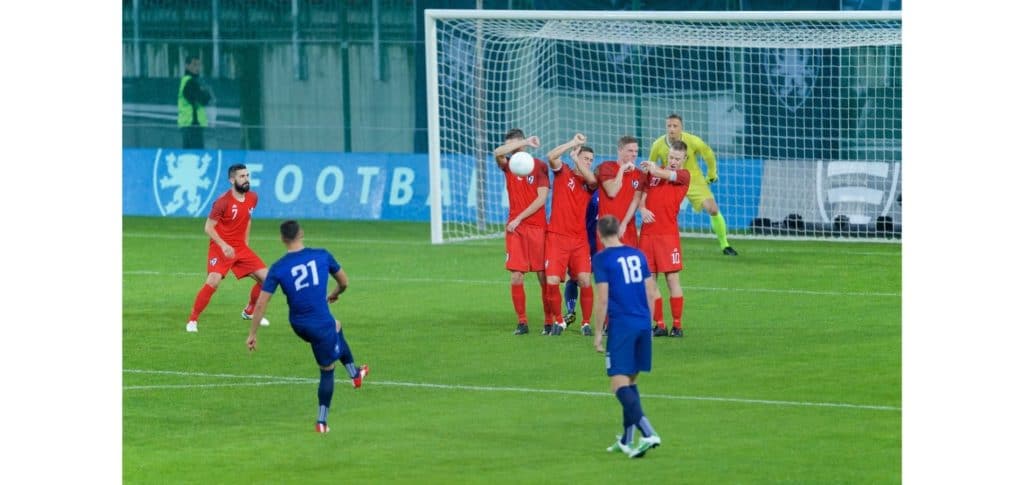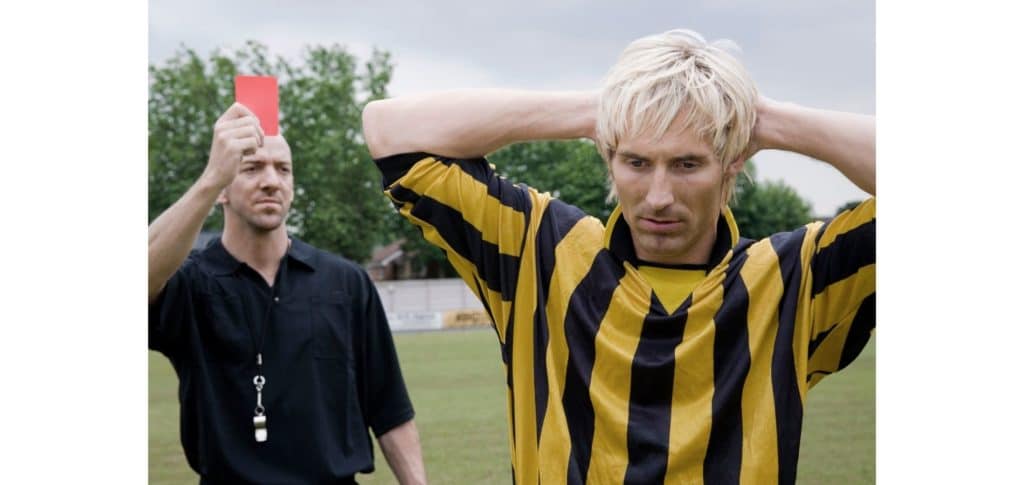Football – or soccer as it’s referred to in the United States – is known to have intense moments where a single decision made by a player or referee can decide the course and eventual outcome of a game.
Therefore, it is quite often in a soccer player’s best interest to act dramatically by way of feigning an injury in order to safeguard a slender score line lead or extend it further, which would either guarantee the accrual of points for a team in a league format or translate into forward progression to the next round of a cup tournament.
Let’s now take a deeper dive by looking at a few different scenarios.
Reasons why players act so dramatically in soccer
I’ve outlined four main contributing factors that influence dramatic player behaviour during matches, and will look at each in turn.
1. Disrupting opposition momentum
Rhythm is a big aspect of the sport and during football matches, teams often come under lots of attacking pressure from an opponent.
And a large part of why clubs are able to perform well for long stretches of games is because players get into a natural flow of performing actions with confidence, as well as being able to draw upon their instincts as opposed to rehearsed patterns of play where moments of hesitation can spring up.
In cases where one side is looking to protect a one-goal advantage, players may resort to using underhanded tactics such as overexaggerating the impact of a collision.
Think about it for a second.
If a player is able to attract the attention of a referee – whose role partly comprises of looking out for player safety – by feigning an injury, then he can succeed in breaking up the opposition’s own attacking momentum which would ultimately serve to relieve pressure on his team’s defence and goalkeeper.
2. Winning goal scoring opportunities

Before the advent of Video Assistant Referee (VAR) technology, diving in football was arguably rampant.
Players knew that they could get away with pretending to have received contact during a jostle, tackle or challenge, as referees were quick to award free kick and penalty decisions in their favour.
In fact, a behavioural study published by PLoS ONE posited that the potential benefits brought about by the act of diving in football outweighed the costs.
With set pieces being such a massive part of the game (I’ve even compiled a list of designated takers for the Premier League!), any player capable of converting most of the aforementioned dead ball opportunities into goals is a valuable asset.
Teams exploit this by acting dramatically whenever a chance presents itself, knowing that convincing the referee of an infringement by taking contact out of proportion is an effective way of creating chances to score from free kicks and penalties – areas close to the opponent’s net.
3. Time wasting
This reason goes hand in hand with disrupting the flow of the game, but I feel that it still deserves a separate mention.
Even though referees wear watches to monitor how much time has elapsed during a game, the timekeeping accountability that they perform isn’t perfect.
Players can use up valuable seconds to close out a game by rolling on the ground whilst holding a part of their body, and signalling for physios to attend to them with treatment after coming on to the field.
It’s an effective way of playing on a referee’s conscience – otherwise known as manipulation – because football athletes are fully aware that match officials cannot simply ignore the presence of a participant with an on-field injury.
Take a look at the video illustration below, which I’m sure will give you a laugh or two:
4. Influencing the referee into taking disciplinary action

As you know, football is played between two sets of 11 players.
If one side where to lose a player to a red card, then the other team would have a numerical advantage which they could use to win the game.
This is why some players choose to make moments of contact look more serious than they are, as they believe that such actions may prompt a referee to dish out a yellow card warning to the offender or send them off entirely.
Do soccer players usually pretend to be hurt?
As you’ve read in this article, there are instances where soccer players do in fact pretend to be hurt if they feel that performing such an action would give them any sort of game advantage.
However, it’s not always the case that players feign injury in football.
There are occasions where really forceful tackles have led to broken legs, fractured bones and other sorts of serious casualties.
In fact, you only need to go back a couple of years to 2015 where current England international Luke Shaw suffered a double leg fracture in a Champions League game.
Closing thoughts
I hope this article has managed to shed some light on why soccer players are so dramatic at times.
It can be an annoyance for some, but there are a multitude of reasons why they act in the way they do.
So just as a reminder…
Soccer players often artificially magnify the impact of collisions and injuries to change or maintain the course of games, usually by convincing referees of fouls which would lead to the award of set pieces in dangerous positions, and also as a way of running down the match clock by wasting time and disrupting opposition momentum.
If you’ve enjoyed reading through this article, then have a look at another one which covers the topic of why soccer players cry a lot or our informative piece on why soccer players like to celebrate so often.
If you enjoy the content that I create and would like to buy me a coffee, then I’d really appreciate it!
Any money that I earn through this donation will be re-invested into more content for this website.
Additionally, by sending in a donation you’ll also receive a copy of my recently released 190+ page eBook on Soccer Ball Care, as well as be subscribed to our mailing list where you’ll be regularly informed on the latest developments concerning the Soccer Whizz blog.
- Future Icons: Europe’s Emerging Midfield Maestros Set for Glory - December 4, 2023
- Kickstarting a Revolution: How Soccer Transformed the United States Over the Last Four Years - October 7, 2023
- 4-1-4-1 Soccer Formation [Analysis] - September 23, 2023

